Archives: Courses
Teaching with the Bill of Rights Institute

INTRODUCTION TO SOCRATIC PEDAGOGY | COURSE 1 Introduction Teaching with the Bill of Rights Institute badge consists of six online modules that explore the BRI's unique approach to teaching history and civics for self-governance. In this course, you will delve into BRI’s rich resources, meticulously designed to impart the principles and practices of self-governance. Join [...]
Teaching the 20th Century
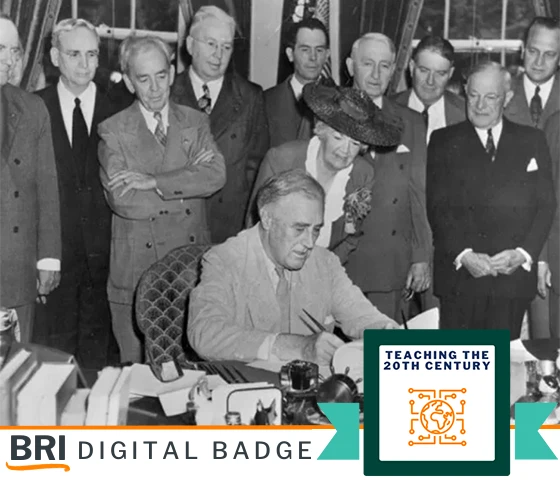
TEACHING THE 20TH CENTURY Introduction Welcome to Teaching the 20th Century! This course provides a content driven, yet thematic perspective into the 20th century. It uses case studies to explore a specific historical reasoning skill and constitutional principle(s). Each guiding question and case study will allow you to draw connections between events and topics throughout [...]
Presidents & the Constitution
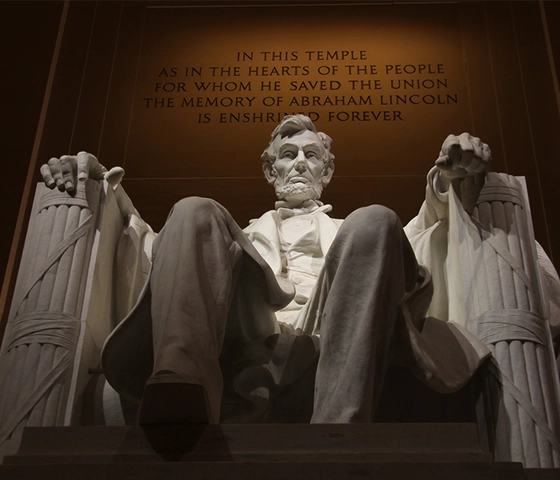
Welcome to Presidents & the Constitution! Presidents & the Constitution provides a comprehensive study of the presidency. The topics examine constitutional principles and how the executive fits into the national government in its relationship to the other branches. Presidential powers are covered extensively and include executive power within a federal system, war-making powers, diplomacy, and […]
Votes for Women: The Story of the Amendment
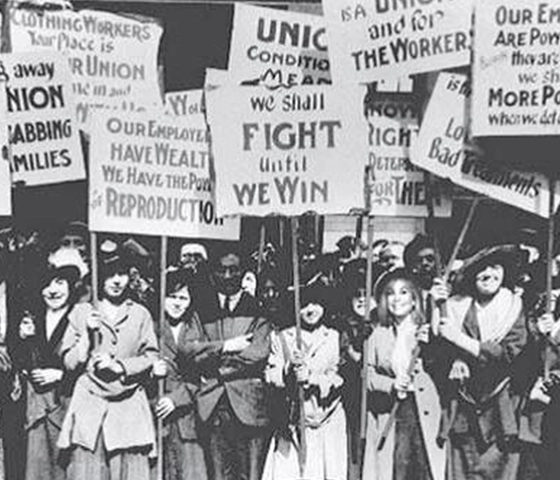
Votes for Women | The Story of the Amendment Introduction Welcome to Votes for Women: The Story of the Amendment! In this course, you will have an opportunity to become familiar with the interplay between such governing principles as equality, liberty, justice, and separation of powers on the one hand, and essential civic virtues such [...]
Bill of Rights Institute’s Master Teacher
Bill of Rights Institute's Master Teacher | COURSE Introduction The Bill of Rights Institute's Master Teacher badge consists of five online modules that explore the mission, vision, pedagogy, and promise of the Bill of Rights Institute. This information prepares you to become a BRI Master Teacher who teaches civics and helps their students examine the [...]
Understanding Intellectual Charity
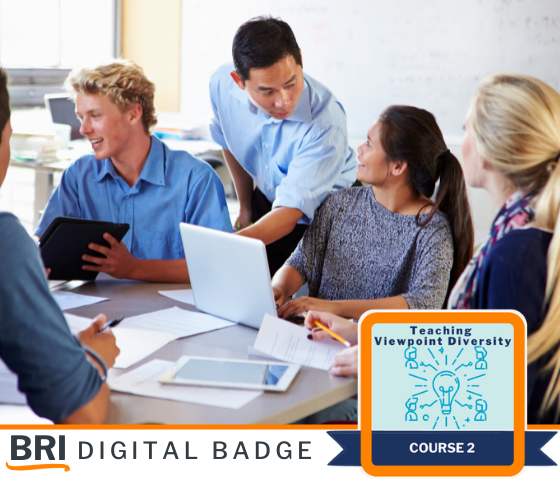
TEACHING HISTORICAL REASONING | COURSE 3 Introduction Welcome to Understanding Intellectual Charity, the second course in the BRI's online program, Teaching Viewpoint Diversity! One of the challenges when teaching viewpoint diversity is when we encounter arguments and points of view that challenge our own. Watch any cable news show these days, and you’ll eventually see [...]
Understanding Sources as Pieces of History

Considering the Source | COURSE 1 Introduction Welcome to Understanding Sources as Pieces of History, the first course in the BRI's online program, Considering the Source! In this course, you'll activate your existing understanding of the topic. And by exploring the importance of historical interpretation, you'll gain new insights of sources as pieces of history. [...]
Building a Toolkit for Historical Reasoning
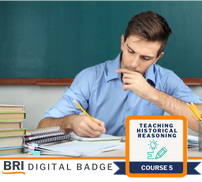
TEACHING HISTORICAL REASONING | COURSE 5 Introduction Welcome to Building a Toolkit for Teaching Historical Reasoning, the final course in the BRI's online program, Teaching Historical Reasoning! In this course, you will explore curated toolkits full of resources used by BRI staff and BRI master teachers. You will complete this final course by evaluating these [...]
Applying Historical Reasoning to Argumentation
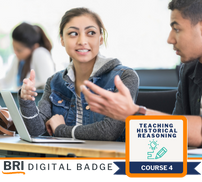
TEACHING HISTORICAL REASONING | COURSE 4 Introduction Welcome to Applying Argumentation to Historical Reasoning, the fourth course in the BRI's online program, Teaching Historical Reasoning! In this course, you will practice making reasoned inferences and making an argument map that you can use in the classroom. Learning Objectives Upon completion of this course, you will [...]
Guiding Students in Inquiry
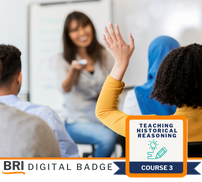
TEACHING HISTORICAL REASONING | COURSE 3 Introduction Welcome to Guiding Students in Inquiry, the third course in the BRI's online program, Teaching Historical Reasoning! Historians are detectives of the past. And, like any good detectives, historians must ask effective questions to understand what happened in history. In this course, you'll know how to skillfully apply [...]
Applying Historical Source Literacy

CONSIDERING THE SOURCE | COURSE 2 Introduction Welcome to Applying Historical Source Literacy, the second course in the BRI's online program, Considering the Source! In this course, you'll review and engage in historical source literacy skills. After honing your skills, you'll observe another experienced teacher model how they apply their skills to a primary source. [...]
Selecting Resources for Viewpoint Diversity
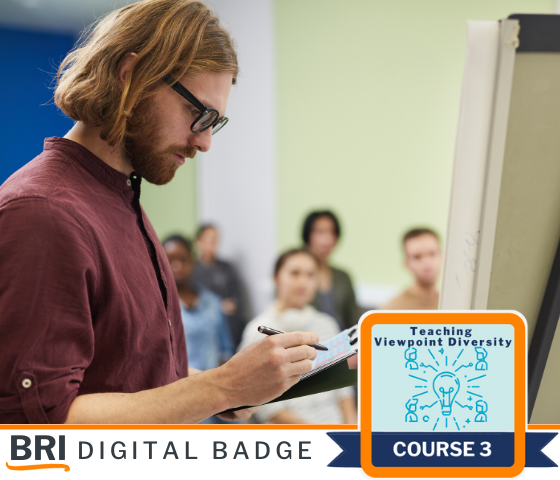
TEACHING VIEWPOINT DIVERSITY| COURSE 3 Introduction As teachers, we understand that our lessons are often only as good as the resources and materials we are able to use to meet the learning goals. When ensuring we have addressed viewpoint diversity in the classroom, the selection of materials becomes more important than ever. We’ve practiced identifying [...]
Identifying Viewpoint Diversity
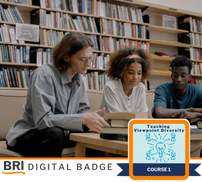
Introduction There is a multitude of ways to look at an issue. We all come to a discussion with a point of view, and all of our experiences contribute to the way we see and think about things in the present, just as actors of the past held differing points of view on events of [...]
Scaffold Sources for Various Learners
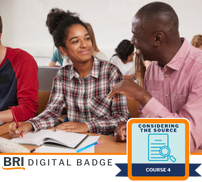
CONSIDERING THE SOURCE | COURSE 4 Introduction Welcome to Scaffold Sources for Various Learners, the fourth course in the BRI's online program, Considering the Source! Primary sources can be difficult for students to read and comprehend. Sometimes we dismiss them because our students cannot access the text, but that can stunt their opportunities for [...]
Viewpoints in Classroom Discussion
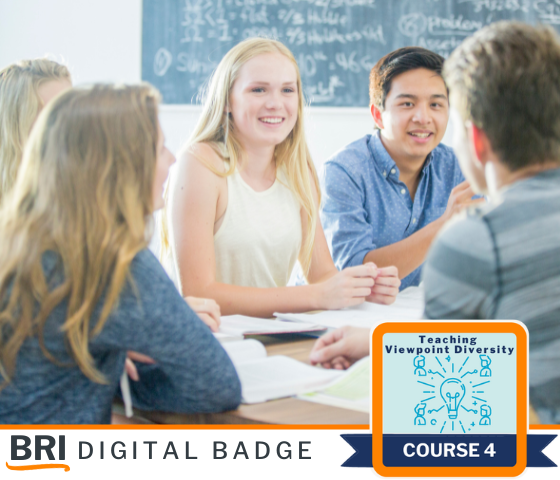
TEACHING VIEWPOINT DIVERSITY| COURSE 3 Introduction Welcome to the fourth and final course in ourTeaching Viewpoint Diversity Badge! Learning Objectives Upon completion of this course, you will be able to: Compare dialogue, discussion, and debate, and explain the purpose of each in the classroom Explore ways to structure conversations around diverse sources and different perspectives [...]
Historical Reasoning: WHAT & HOW We Know It
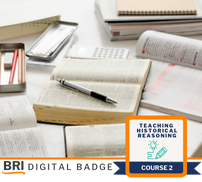
TEACHING HISTORICAL REASONING | COURSE 2 Introduction Welcome to Historical Reasoning: What We Know and HOW We Know It, the second course in the BRI's online program, Teaching Historical Reasoning! In this second course, you'll learn how teachers and historians work with historical sources so that you can engage your students in historical reasoning. After [...]
Studying History in Modern Times
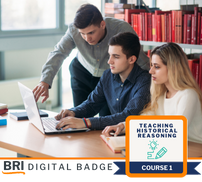
TEACHING HISTORICAL REASONING | COURSE 1 Introduction Welcome to Studying History in Modern Times, the first course in the BRI's online program, Teaching Historical Reasoning! In this course, you will understand the meaning of history while exploring the reasons we study and teach the subject. At the end of this course, you will reflect on [...]
Selecting Relevant Sources

INTRODUCTION TO SOCRATIC PEDAGOGY | COURSE 3 Introduction Welcome to Selecting Relevant Sources, the third course in the BRI's online program, Considering the Source! By the end of this course, you will know how to select relevant and credible sources to meet your learning objectives. You will complete this module by applying your learned skills [...]
The Anatomy of An Argument
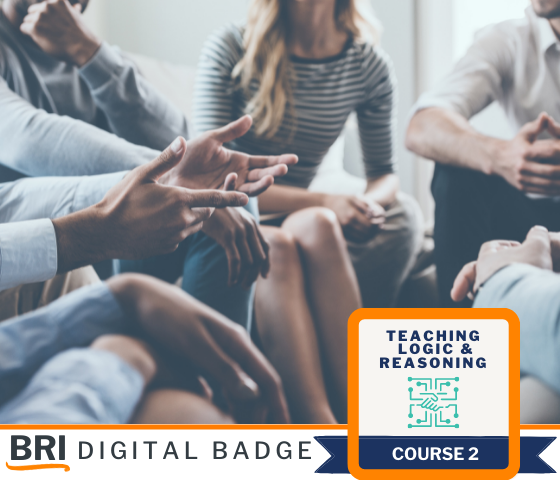
“A mature society understands that at the heart of democracy is argument.” -Salman Rushdie, October 2012 Introduction Welcome to The Anatomy of an Argument , the first course in the BRI's online program, Teaching Logic and Reasoning! We have established the essential role of dialogue and argumentation in a democratic society. Innovation and the development [...]
Errors in Logic – Biases and Fallacies
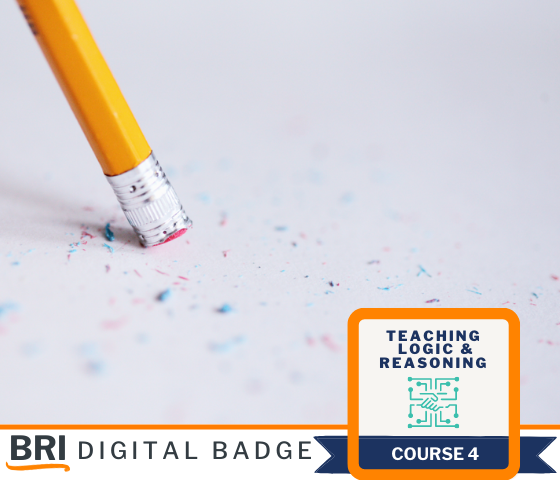
“When examining evidence relevant to a given belief, people are inclined to see what they expect to see, and conclude what they expect to conclude. Information that is consistent with our pre-existing beliefs is often accepted at face value, whereas evidence that contradicts them is critically scrutinized and discounted. Our beliefs may thus be less [...]